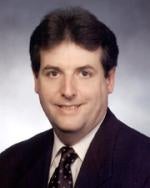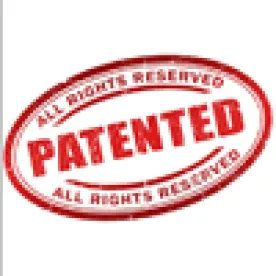Hyatt v. Lee
The U.S. Patent and Trademark Office (USPTO) can release confidential information about pending patent applications under special circumstances the U.S. Court of Appeals for the Federal Circuit decided. Hyatt v. Lee, Case No. 14-1596 (Fed. Cir., Aug. 20, 2015) (Moore, J.).
Gilbert Hyatt is a named inventor on nearly 400 pending patent applications filed before June 9, 1995. Hyatt’s pending applications have extremely large claim sets, averaging 119 independent claims and 299 total claims. It is estimated that Hyatt currently has about 45,000 independent claims and 115,000 total claims pending, all of which spring from 12 distinct invention disclosures.
In August 2013, the USPTO began to issue to Hyatt formal Office Actions, termed “Requirements.” Each Requirement required Hyatt to select a number of claims for prosecution, not to exceed 600 from a given patent family, absent a showing that more claims are necessary; identify the earliest applicable priority date and supporting disclosure for each selected claim; and present a copy of the selected claims to the USPTO. The Requirement is entered into the prosecution history of each application and includes information about related applications, including prosecution history and the full text of claims in related applications. In the ordinary course of business, applications having a filing date prior to November 9, 2000 are confidential until they issue. Once issued however, the entire prosecution history is open to the public. Thus, once an application with a Requirement is issued, confidential information about related pending applications included in the Requirement will also be available to the public.
Hyatt petitioned the USPTO to expunge confidential information in the prosecution history. 35 U.S.C. § 122(a) requires the USPTO to keep applications confidential unless “necessary to carry out provisions of an act of Congress or in such special circumstances as may be determined by the Director.” The director denied Hyatt’s petitions, deciding that circumstances surrounding these applications, including the number of related applications, the number of claims and the number of applications to which priority is claimed qualified as special circumstances.
Hyatt appealed to the district court under the Administrative Procedure Act (APA) and the district court granted the USPTO summary judgment, dismissing Hyatt’s complaint had observing that there was no judicially mandated standard of review and alternatively that § 122 did not prohibit the disclosure of confidential information in the Requirements because they were necessary for the examination of these applications and the extraordinary nature of Hyatt’s applications constituted special circumstances. Hyatt appealed.
On appeal, the Federal Circuit determined that the exceptions to confidentiality as provided for in § 122 were narrow and reviewable. The Federal Circuit explained that in order to avoid the secrecy requirements of § 122, the USPTO must not only determine that special circumstances exist, but also that the special circumstances justify the specific content to be disclosed. In this instance, noting the large number of claims that Hyatt had pending, which would have a term of 17 years from date of issue, and that the complex and overlapping priority relationships between the applications, the Court determined that the circumstances were not just special, but unique. Further, the Court found that the director did not abuse her discretion in Hyatt’s cases, and that the determination of special circumstances was narrow and not likely to affect other cases. Moreover, because of the extraordinary number and duplicative nature of the various applications, the Court found the rules justify the Requirements. 37 C.F.R. § 1.75(b) provides that, in a patent application “[m]ore than one claim may be presented provided they differ substantially from each other and not unduly multiplied.” Thus, the Requirements were necessary to ensure that Hyatt’s applications were in compliance with the rule.
Practice Note: The impact of this holding is very limited, as the number applicants prosecuting pending patent applications having a 17-year term from issue is dwindling, and no other applicants have been nearly as prodigious as Mr. Hyatt in filing claims that will have a term of 17 years upon issue.




 />i
/>i
